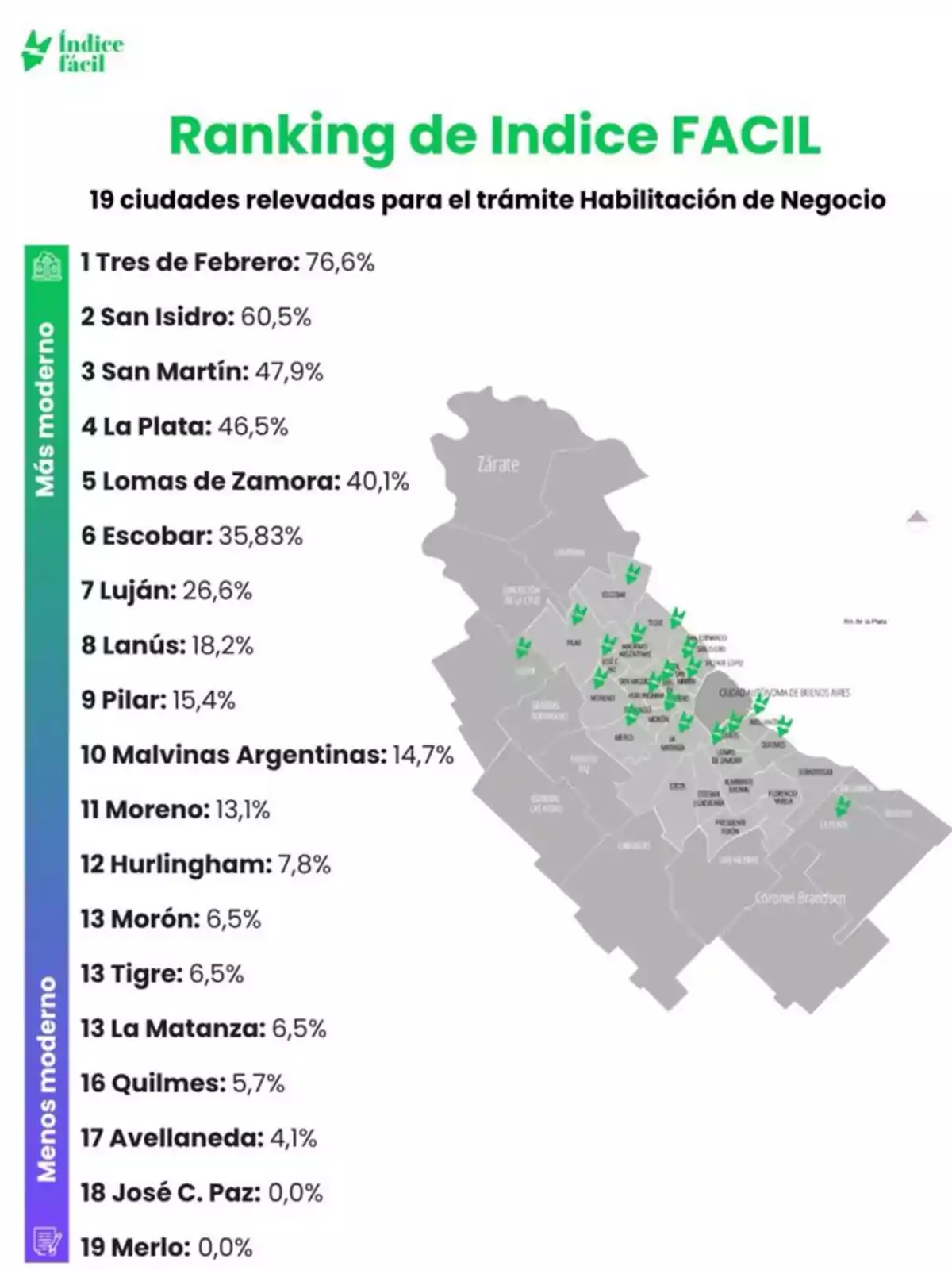
Tres de Febrero leads the business licensing ranking in AMBA with 76.6%
The municipality, successfully managed by Diego Valenzuela, ranked first in the business licensing ranking
The FACIL Index, surveyed in August 2025 across 19 cities in the AMBA, evaluated the clarity, digitalization, and assistance in the business licensing process, one of the most decisive processes for local economic development. The report analyzed official portals, current regulations, and available guides, concluding that in some districts opening a business is a modern and agile experience, while in others it remains a nightmare of in-person procedures and redundant requirements.
First place in the ranking went to Tres de Febrero, governed by libertarian Diego Valenzuela, which achieved 76.6%. The district has established itself as an example of transparency and efficiency, with a website offering step-by-step guides, comprehensive information, and online procedures. This is a clear sign that when politics aligns with principles of economic freedom and simplification, local development is enhanced.

San Isidro (60.5%) ranked second, under the management of Ramón Lanús (PRO), with a modern digital portal and active assistance for residents. At an intermediate level were San Martín (47.9%), led by Peronist Fernando Moreira, and La Plata (46.5%), under the long-serving mayor ultra KirchneristJulio Alak, which still maintain part of their procedures in person.
Other municipalities that showed partial progress were Lomas de Zamora (40.1%), Escobar (35.8%), Luján (26.6%), and Lanús (18.2%). Meanwhile, districts such as Pilar (15.4%) and Malvinas Argentinas (14.7%) show incipient but insufficient developments.
At the opposite end, the study revealed that old politics still weighs heavily in municipalities where bureaucracy suffocates residents and discourages investment. Moreno (13.1%), La Matanza (6.5%), Morón (6.5%), and Tigre (6.5%) showed processes plagued by requirements, scarce information, and a lack of digitalization.

The worst performances were recorded by Quilmes (5.7%), Avellaneda (4.1%), and the critical case of José C. Paz and Merlo, which scored 0% for not offering online information or guides for entrepreneurs, forcing them to personally visit municipal offices.
The disparities are deep: while in some municipalities opening a business is fast and digitalized, in others it becomes an obstacle that hinders job creation. According to Idesa, "municipalities with more cumbersome procedures could be discouraging the opening of new businesses, affecting the local entrepreneurial climate."
This is no minor detail: AMBA concentrates one third of the national population and nearly half of the country's GDP. The agility to license businesses means activating value chains in neighborhoods, generating direct and indirect employment, and stimulating economic growth.
The report highlights that the leading districts share key elements: comprehensive and up-to-date online information, digitalized processes, clear guides, and in some cases the elimination of licensing fees, which reduces barriers for entrepreneurs.
Meanwhile, the most lagging municipalities exhibit common shortcomings: lack of information, mandatory in-person procedures, and absence of guides, which multiplies costs in time and money.
The FACIL Index also points to possible improvements: detailed publication of requirements and deadlines, comprehensive digitalization with single digital windows, elimination of redundant documentation, and review of fees. "A State that guides citizens through their procedures builds trust and makes compliance with the rules seen as a collaborative process," the Idesa document emphasizes.
More posts: